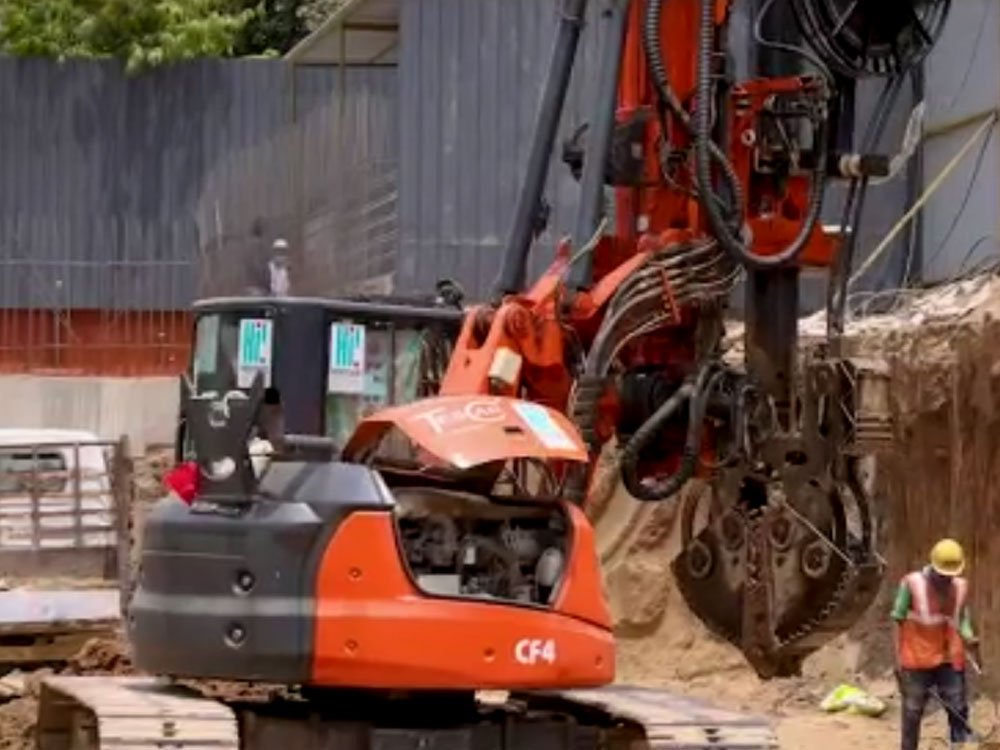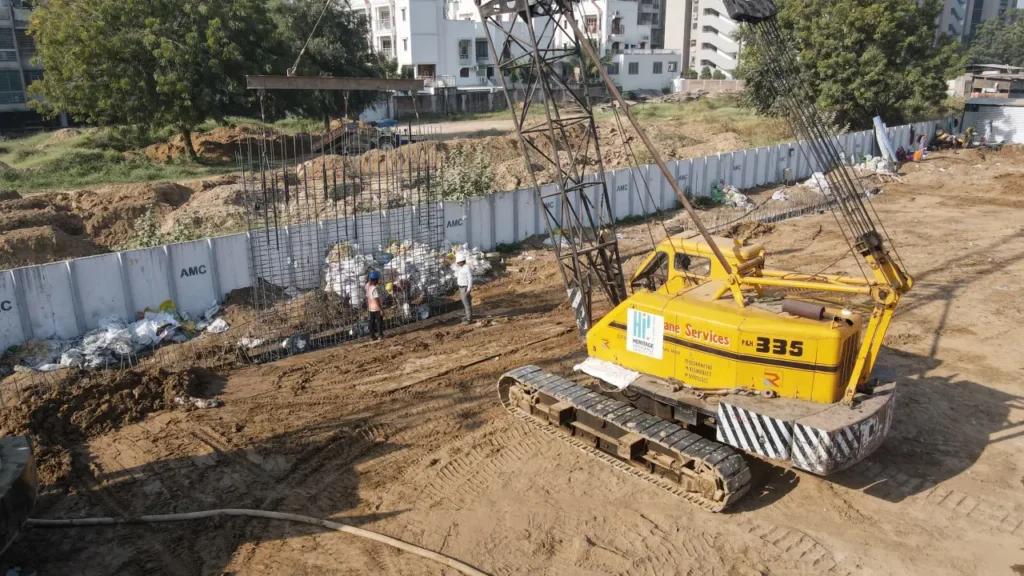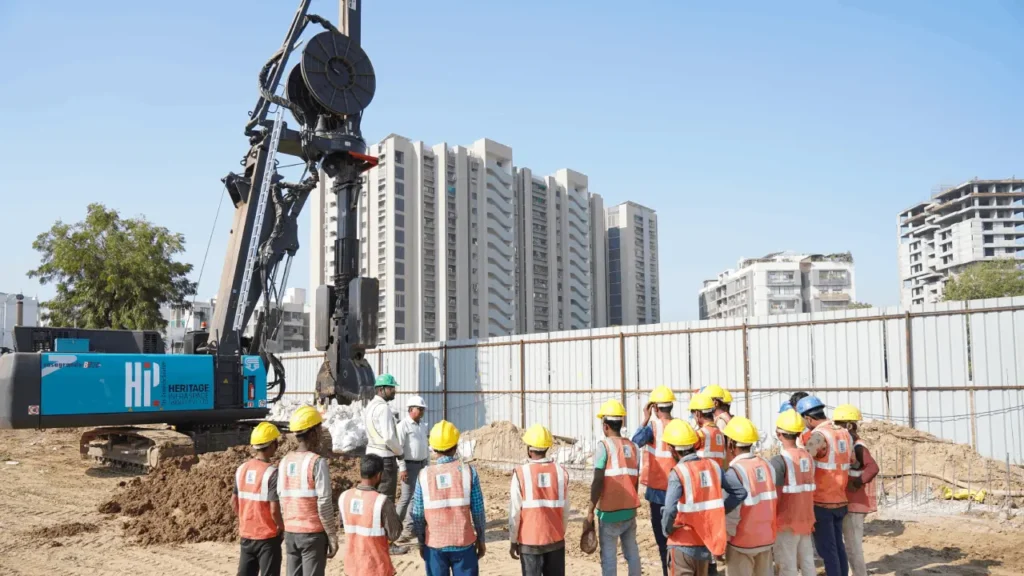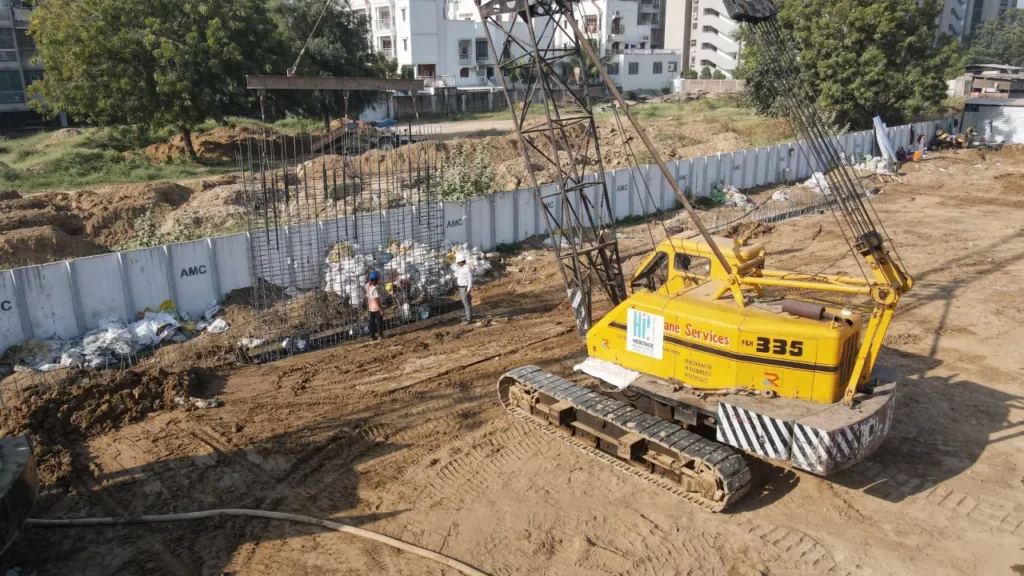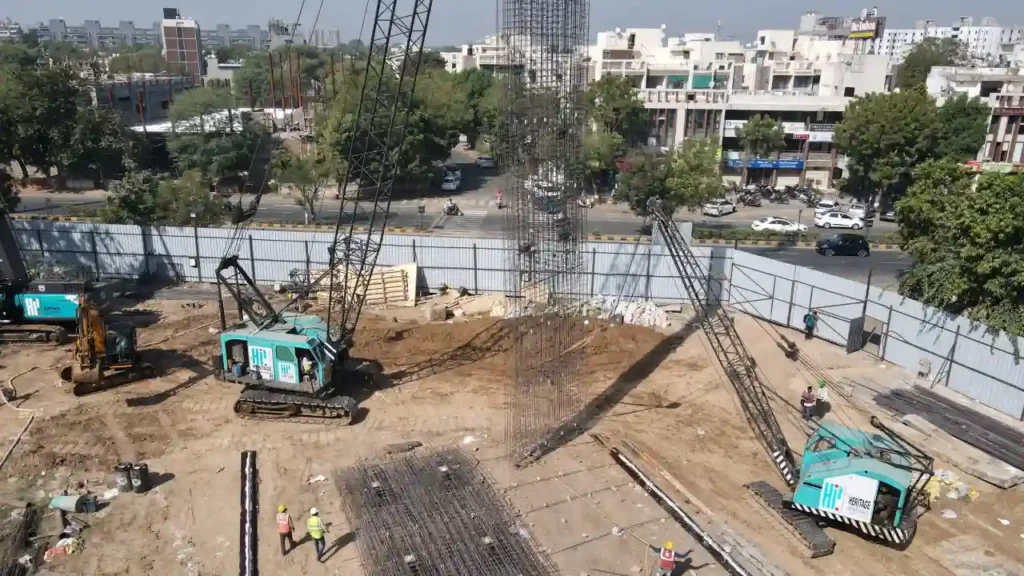Understanding soil is a crucial part of building a diaphragm wall for deep basements. Civil engineers from some of the best construction companies in India will agree that for a project to proceed, it is vital to ensure that the soil on the construction site can take the load, withstand the pressure with time and not degrade the construction material used in the structure.

As one of the top civil construction companies in India, we have set standards in constructing diaphragm walls in almost all types of soil across the country and worldwide. Read on to know what our civil engineers look for in the ground they work with and the actions they take to ensure a strong foundation is laid for the diaphragm walls to last for the longest time.
Types of soil
A large country like India has different types of soil in different regions as per its climatic conditions and its exposure to various environmental elements like heat, snow, salinity, etc. Being among the leading construction companies in India and having worked all over the country, our engineers have come to define the types of soil below and how they affect deep basement construction:
– Sandy: In the north-western belt of the country, in states like Gujarat, Rajasthan and Haryana, the top soil strata have more sand in them and are drier because of the excessive exposure to heat. While excavating through them is easier, what’s challenging is ensuring the soil doesn’t collapse.
– Marshy: The coastal belt of India that stretches down south from Maharashtra to Andhra Pradesh and West Bengal, has a much marshier soil thanks to the high water table in the ground, proximity to the sea and the humid climate the regions have. The construction of the diaphragm wall in such soil conditions also involves shoring activities.
– Sand with Silt: The central parts of the country, like Madhya Pradesh, Uttar Pradesh, Delhi and some parts of Gujarat have sandy soil, mixed with silt deposits. These occur from the various rivers flowing through these regions. Ahmedabad is one such city.
– Rocky/Gravel: The central and far northern regions of the country with mountain peaks have rocky strata with lots of gravel in their soil. Working in such conditions is a challenge, as engineers have to involve trench cutters to penetrate the layers to excavate further.

Challenges faced by the best construction companies in India
It is never a walk in the park when it comes to constructing a diaphragm wall for deep basements in a country like India, where the soil type changes with every state, cities are densely populated and the soil quality resultantly going down.
But what makes HIPL among the top civil construction companies in India is the innovation in ground engineering by our civil engineers to overcome all the challenges it faces. The top 2 challenges we face are:
– High Water Table: When a construction site is close to a water body, like a river, lake or sea, the upper surface of the zone of saturation in the soil is higher. And when the ground has a higher water table, the soil becomes denser, making excavation unstable and more time consuming. Further, there is always the risk of water seeping into the diaphragm walls during the construction in such regions.
– Poor Soil Value: Before commencement of any underground construction or excavation activity, civil engineers conduct a soil quality test to gauge the value of the soil. It’s termed as the End Value of the soil. If the End Value of the soil of a region is above 100, then it is considered to be rocky. And if the soil End Value is below 10, then it is too weak and stands the risk of collapse if excavated further. The ideal End Value of the soil for diaphragm wall construction according to the engineers of leading construction companies in India, is anywhere between 20 to 30.
Prior to starting any project, our engineers conduct a thorough study of the soil investigation report, involve a structural consultant to analyse the report and guide the team in the ideal step forward and the kind of tech to be used.
Some unique challenges

The engineers of HIPL have come across various trying challenges in all the projects worked so far, but two of the most difficult ones were during a dam project and a diaphragm wall project at the Daman Sea Front.
While building diaphragm walls for dams, the ever flowing river with a steady upstream and strong downstream was a challenge, as it could erode the soil with the passage of time, and resultantly, the diaphragm wall may get damaged. The engineers had to build 3 diaphragm walls to ensure that the soil barely eroded away, while giving a sturdy wall for the deep excavation and construction further. Daman Sea Front was unique since it had very marshy soil, but with a rocky strata and a high water table beneath it. The team had to formulate a unique consistency of their polymer fluid with regular viscosity and density checks to ensure it held the density measure anywhere in the range of 45 to 90 seconds. The high tide and low tide was another challenge the 50+ team members working on ground had to deal with. Despite which, the project was completed on time.
Know more about the various types of diaphragm wall projects HIPL has worked on, ranging from Metros, riverfronts, dams, sewage treatment plants, etc. Reach out to us on info@oldheritage.4wheelsmediaworks.in or call us on 07926840355 to discuss your next deep basement project with us.

